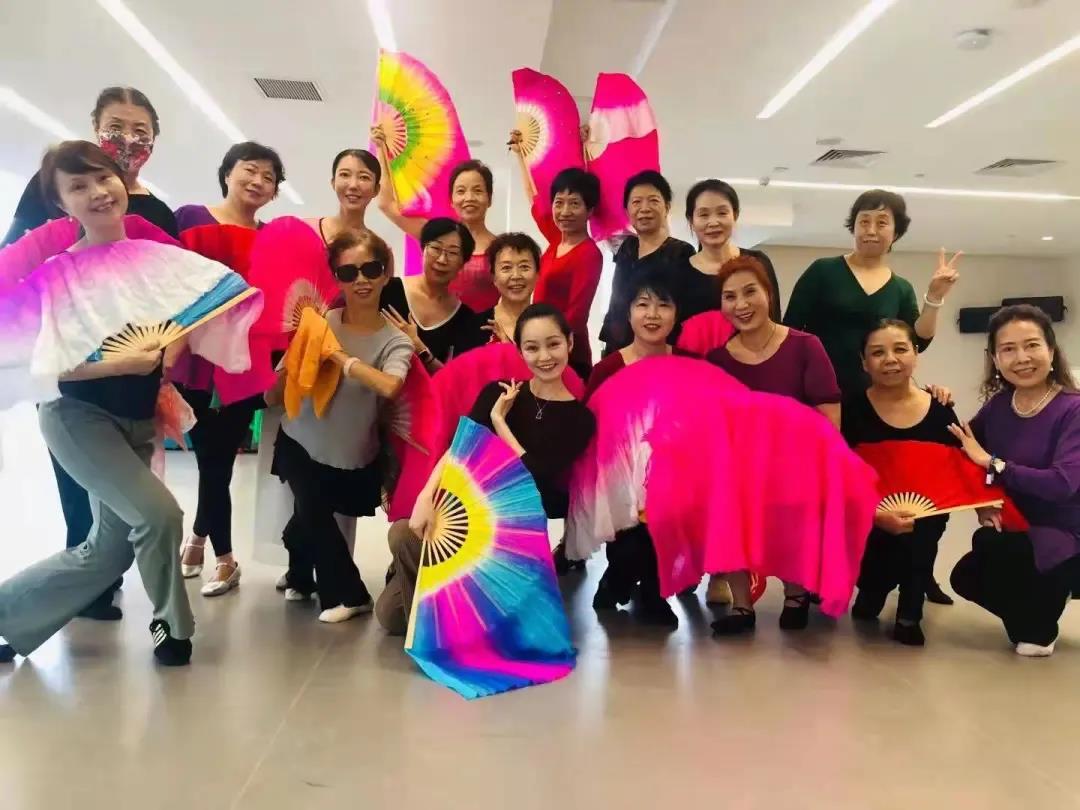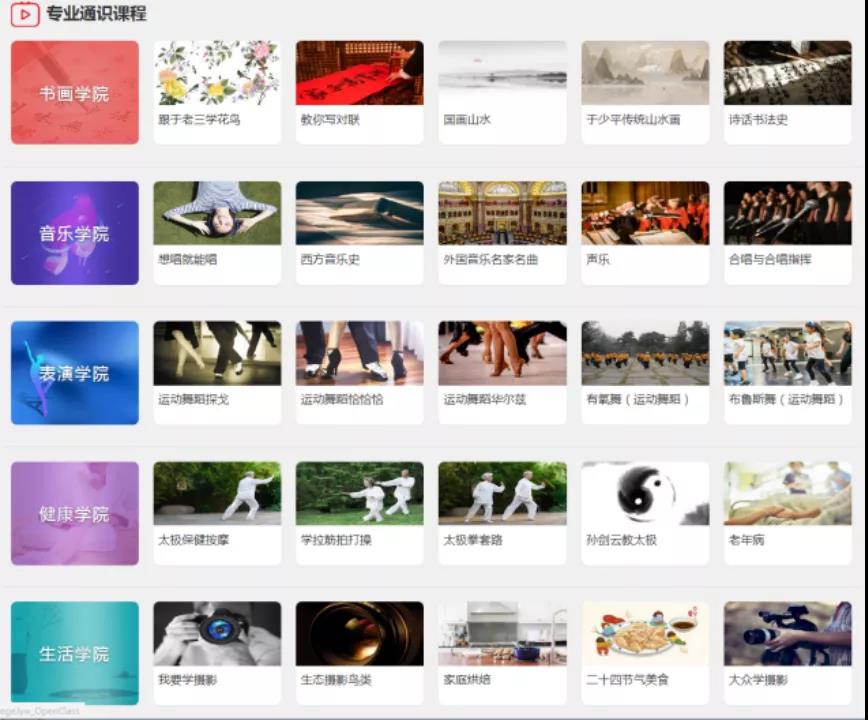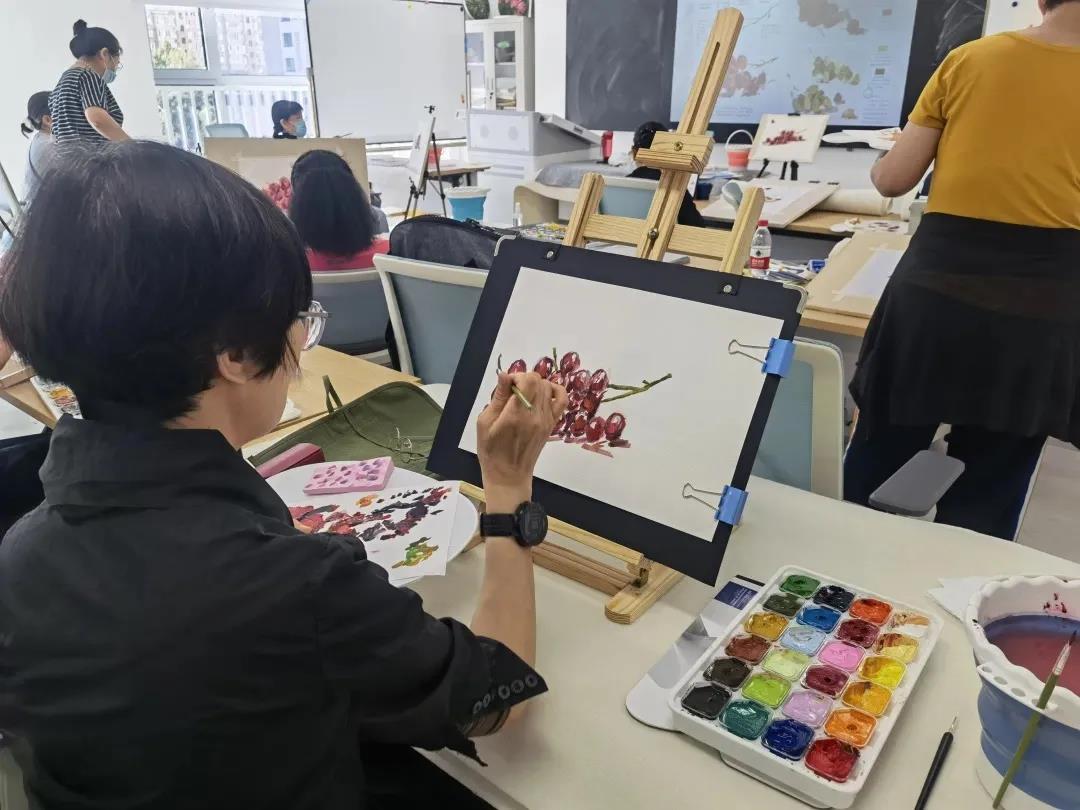 “I can hardly imagine life without the University for Older Adults,” said Liu Shuqin, a 62-year-old student of the university, part of the Open University of China (OUC). She signed up for a calligraphy class recently, after having finished a painting class. “I plan to get enough credits to obtain a diploma. You're never too old to learn!”
“I can hardly imagine life without the University for Older Adults,” said Liu Shuqin, a 62-year-old student of the university, part of the Open University of China (OUC). She signed up for a calligraphy class recently, after having finished a painting class. “I plan to get enough credits to obtain a diploma. You're never too old to learn!”

Students in the UOA “Dance Drama”Class
The “Opinions of the CPC Central Committee and the State Council on Population Ageing in the New Era”proposes that the establishment of a National University for Older Adults (NUOA) will rely on the OUC to build a platform for sharing educational resources and public services for older adults nationwide.
What is it like to study at the UOA? How will the NUOA be developed? The reporter took these questions to the OUC.
With classes ranging from piano, chess, calligraphy and painting to new technology, the UOA offers older adults chances to enrich their lives through learning.

Students in the UOA “Short Mobile-phone Videos” Class
“Look at this photo I took. The sun shining on the ginkgo leaves creates this golden image. It’s so beautiful!” exclaimed Zhang Hongdie, a UOA student in a “Basics of Photography” class in the autumn 2021 semester. She learned a lot in the class.
Student Zhu Xiaoqi signed up for five courses at the same time, with Short Mobile-phone Videos and Micro-film Production helping her realise her dream of becoming a director, while Recitation taught her to appreciate sound, and incorporate it into her videos. She also took Writing Family Stories and From Plain to Beautiful, adding to her rewarding experience.
Student Kang Jianmin likes to make use of the UOA's online resources, including live lectures. He says, “The courses can be replayed so that I can learn anytime, anywhere, which suits me really well!”
At the UOA, there are many older adults who love learning. According to Liu Chen, deputy secretary of the Party Committee of the OUC, and president of the UOA, a strong demand for education exists in this demographic, and the education of older adults has been developing rapidly in China.
Problems remain, however, such as a shortage of UOA courses, especially in rural areas. According to Liu Chen, construction of the NUOA will promote the development of courses and resources, and help balance out access to these across the country.
40,000 Study Centres and 380,000 Minutes of Learning Resources

Part of the OUC UOA courses
launched the UOA in 2015 and has enhanced its operations ever since, laying a solid foundation for the construction of the NUOA.
A nationwide network of schools for older adults is the best approach to expanding coverage. Taking advantage of its experience, the university has established provincial open universities for older adults or other specialised institutions in its 30 branches, and set up over 40,000 study centres for seniors at the grass-roots. The OUC online-learning platform has over 6.3 million registered users, 128 million individual services have been provided, and 100,000 classes have been opened offline for over 5.73 million students.
The multi-terminal learning platform has paved the way for enhanced provision of educational resources and public services for older adults nationwide. The OUC, putting to use its experience with modern information technology, has been building a multi-terminal learning environment for older adults, including the China Elderly Education Network and a national platform for sharing of resources and services. It has helped build the UOA learning network and app and launched a“golden school” channel for older adults, aiming to provide learners with online and offline support and services. The first phase of the national platform is now complete, and nearly 30 million students have access to support.

Photo by the UOA
In addition, learning resources covering 9 categories and 380,000 minutes have been made available to older adults, including a catalogue and over 400 courses on a variety of topics. At the same time, taking into account China’s national conditions and the learning needs of older adults, it has designed and developed numerous high-quality offline courses, including on aging in China, smart technology for older adults, and health. In order to help older people pursue degree studies, it has planned programmes, curricula and certification systems suited to them, and pursued means of connecting non-degree and degree education. So far, programmes covering 7 categories and 20 majors or orientations have been designed.
The Future of the UOA
Jing Degang, secretary of the Party Committee of the OUC, said that the OUC would continue to strive to enhance education of older adults in terms of both coverage and resources.
The OUC will do so on the basis of its existing platform, making full use of new technologies, such as artificial intelligence, 5G, cloud computing, blockchain, and so on, and providing online resources and other services throughout the network, including personalised learner support.

Students in the UOA Basics of Watercolour Painting class
In terms of resource construction, the OUC will continue to emphasise the health of seniors and the positive aspects of aging, while providing diverse multi-level teaching services centered on curriculum resources, and promoting both degree and non-degree education.
According to Jing Degang, “In the future, the UOA will be both an institution in itself and an organisation that runs schools within the OUC system. It will be a new type of university for older adults boasting a complete organisational system, rich learning resources, flexible and diverse approaches, standardised teaching management, continuous innovation, and high levels of popularity and influence. The UOA will be both a place for learning and a spiritual home for older adults. It will lead the education of older adults within China’s continuing-education system, and offer a window on international exchanges within this field.”
Reprinted by OUC News Network from People’s Daily